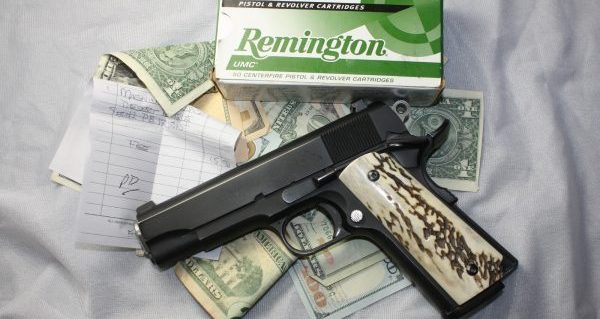
The weekend announcement that three major credit entities will “use a new code for gun shop purchases in US stores” has touched off a fury in the firearms community, with the National Rifle Association telling Business Insider the move “is nothing more than a capitulation to anti-gun politicians and activists bent on eroding the rights of law-abiding Americans one transaction at a time.”
The report identified Visa, MasterCard and American Express as having adopted the coding idea “after the International Organization for Standardization, a Geneva-based nonprofit, approved the creation of a merchant code for gun retailers,” according to Yahoo News.
New York City Mayor Eric Adams, who reportedly blames his city’s spike in violent crime on “the proliferation of guns,” according to the Associated Press. There was no mention of the liberal policies toward criminals.
New York City Comptroller Brad Lander told the AP the decision made “moral and financial sense.”
But critics contend the decision amounts to an invasion of privacy against gun owners, and also raises alarms that the credit card companies are trying to “circumvent regulations preventing federal tracking of gun sales,” said Jim Shepherd, editor of The Outdoor Wire.
Concern about the move is so intense, at least in the Pacific Northwest, that at least two separate conversations have erupted on the popular Northwest Firearms forum. A participant in one of the two threads advised, “Bottom line, don’t use credit and use cash. If it needed to be put on credit, then maybe could y afford it to begin with. On the other hand, sucks for all who order online and want the protections afforded by using a credit card. Might be a good time to establish some relationships with local shops who do wholesale orders on a regular business. Use cash and don’t be in a hurry.”
Does this somehow create a de facto gun registry?
As reported by Reuters, “In a statement, Amalgamated Chief Executive Priscilla Sims Brown said the codes will allow financial institutions to use new tools to detect and report suspicious activity associated with gun trafficking and mass shootings, without impeding legal gun sales.”
But this raises two questions: To whom, or what agency, will these financial institutions report this “suspicious activity,” and what constitutes this “suspicious activity” in the first place?
It might also be fair to wonder why financial institutions have decided unilaterally to monitor firearms sales.